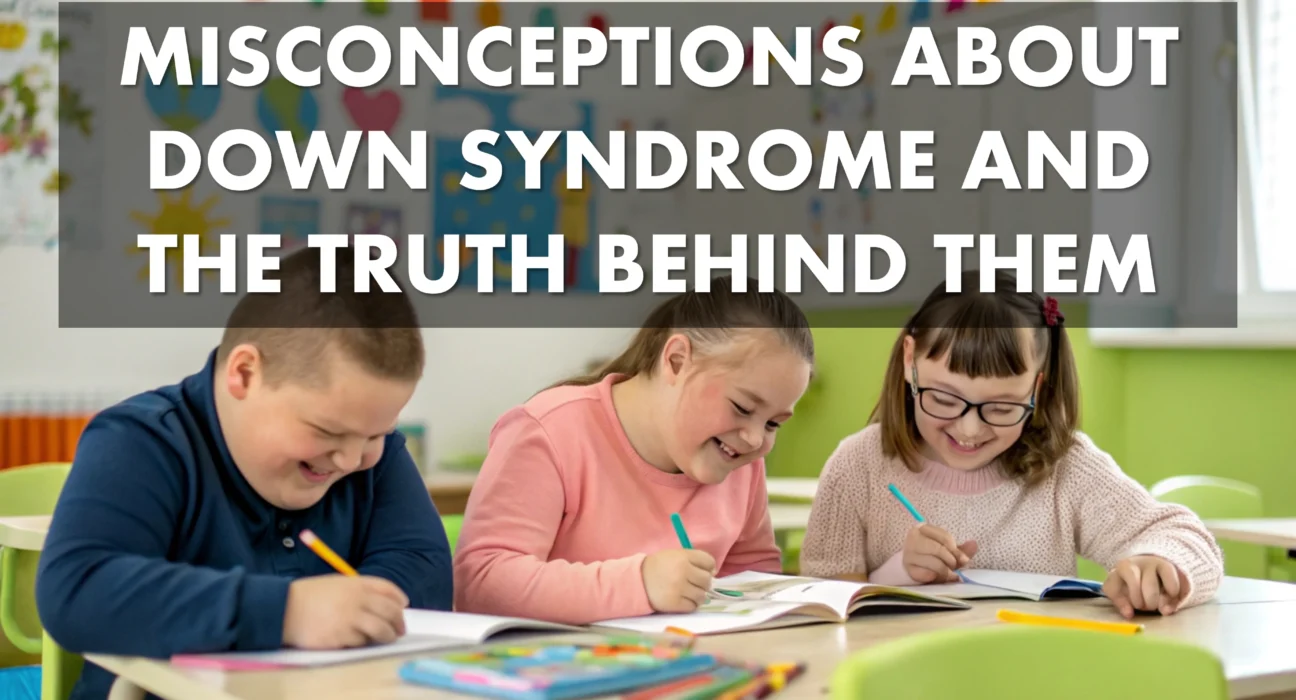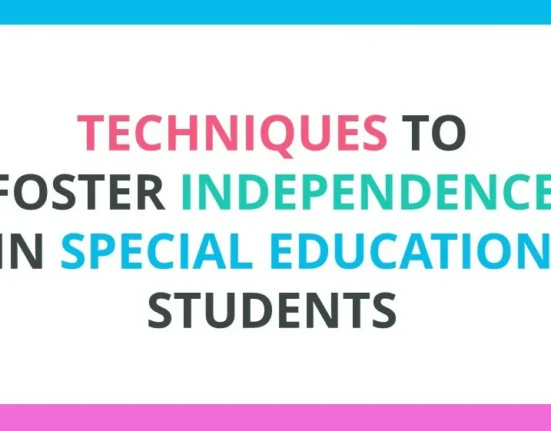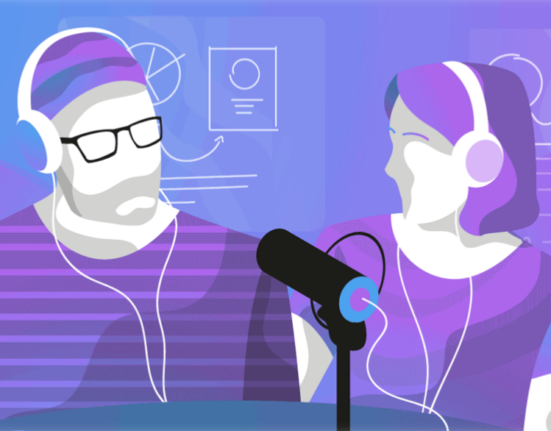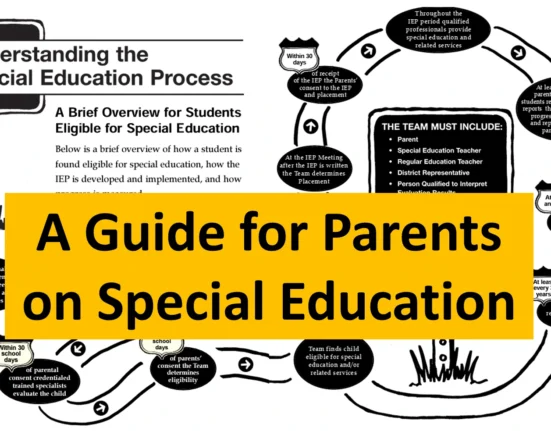Understanding Misconceptions About Down Syndrome
Down Syndrome is one of the most commonly misunderstood conditions, surrounded by myths that perpetuate stigma and hinder acceptance. This article will highlight 20 misconceptions about Down Syndrome, providing clear, factual insights to help build a more inclusive society.
Misconception 1: Down Syndrome is Rare
Down Syndrome is not as uncommon as many believe. Worldwide, approximately 1 in 700 babies is born with the condition. It affects people across all ethnicities and socioeconomic backgrounds.
Misconception 2: Down Syndrome is a Disease
Down Syndrome is not a disease but a genetic condition caused by an extra copy of chromosome 21. It’s not something to be “cured,” but rather a condition to be supported and understood.
Misconception 3: People with Down Syndrome Cannot Learn
This is untrue. Many individuals with Down Syndrome excel academically, professionally, and socially when provided with proper support and resources. Their learning abilities are varied, just like everyone else’s.
Misconception 4: All People with Down Syndrome Are Alike
Every person with Down Syndrome is unique, with individual personalities, abilities, and challenges. Grouping them into a stereotype diminishes their individuality and humanity.
Misconception 5: Down Syndrome is Always Inherited
Most cases of Down Syndrome are not hereditary. Around 95% of cases occur due to a random genetic event during cell division, not passed down from parents.
Misconception 6: People with Down Syndrome Have Short Life Expectancies
Due to advancements in medical care, individuals with Down Syndrome often live into their 50s, 60s, or even longer, enjoying fulfilling lives.
Misconception 7: People with Down Syndrome Are Always Happy
While many with Down Syndrome are friendly and cheerful, they experience a full range of emotions, including sadness, frustration, and anger.
Misconception 8: People with Down Syndrome Cannot Live Independently
Many individuals with Down Syndrome live independently, work, and maintain relationships, given the right support and resources. Independence depends on their personal abilities and opportunities.
Misconception 9: Down Syndrome Means Severe Disabilities
The severity of Down Syndrome varies widely. Some may face more significant challenges, while others lead relatively independent lives, pursuing education, careers, and hobbies.
Misconception 10: People with Down Syndrome Don’t Understand Others
Individuals with Down Syndrome are often very empathetic and capable of understanding complex emotions and social interactions.
Misconception 11: Down Syndrome Only Affects Children
Down Syndrome affects individuals throughout their lives. As they age, their needs and challenges may change, but they remain valuable members of society at all stages of life.
Misconception 12: People with Down Syndrome Should Be Sheltered
Sheltering individuals with Down Syndrome limits their opportunities for growth and independence. Inclusive education, community integration, and employment foster their potential.
Misconception 13: People with Down Syndrome Cannot Work
Many individuals with Down Syndrome hold meaningful jobs in diverse fields, from retail to performing arts, demonstrating their capabilities and contributions to the workforce.
Misconception 14: Down Syndrome Prevents Relationships
People with Down Syndrome form deep friendships, romantic relationships, and even marriages. Their ability to build meaningful connections is as profound as anyone else’s.
Misconception 15: They Don’t Understand Responsibility
Given proper training and encouragement, many individuals with Down Syndrome take on responsibilities, including managing personal finances, maintaining a home, and contributing to their communities.
Misconception 16: They Cannot Participate in Sports or Arts
People with Down Syndrome excel in various creative and athletic pursuits, competing in sports like swimming or participating in theater, music, and dance programs.
Misconception 17: They Cannot Advocate for Themselves
Many individuals with Down Syndrome are active self-advocates, speaking at conferences, participating in campaigns, and sharing their stories to promote understanding and inclusion.
Misconception 18: Down Syndrome Always Comes with Medical Complications
While some individuals with Down Syndrome may have health challenges, such as heart or thyroid issues, not everyone experiences these complications.
Misconception 19: Down Syndrome Can Be Prevented
Down Syndrome occurs due to random genetic factors during conception. It cannot be prevented, but early interventions and support can significantly improve outcomes.
Misconception 20: People with Down Syndrome Don’t Contribute to Society
This is one of the most harmful misconceptions. Individuals with Down Syndrome contribute in countless ways—as employees, artists, athletes, advocates, and loving family members.
Conclusion
By addressing these 20 misconceptions about Down Syndrome, we can challenge outdated stereotypes and create a more accepting, inclusive world. Every individual with Down Syndrome deserves to be seen for their abilities, celebrated for their contributions, and supported in their journey.
FAQs
What is Down Syndrome?
Down Syndrome is a genetic condition caused by an extra copy of chromosome 21.
Is Down Syndrome rare?
No, it is relatively common, affecting about 1 in 700 births worldwide.
Can individuals with Down Syndrome live independently?
Yes, many individuals live independently with appropriate support.
Are people with Down Syndrome always happy?
No, they experience a full range of emotions like everyone else.
Do all people with Down Syndrome face severe disabilities?
No, the degree of impact varies greatly among individuals.
How can society support people with Down Syndrome?
By promoting inclusion, providing opportunities, and challenging stereotypes through education and advocacy.
Suggestions for Links
Inbound:
Outbound:
- National Down Syndrome Society (NDSS): https://www.ndss.org
- World Down Syndrome Day: https://www.worlddownsyndromeday.org






